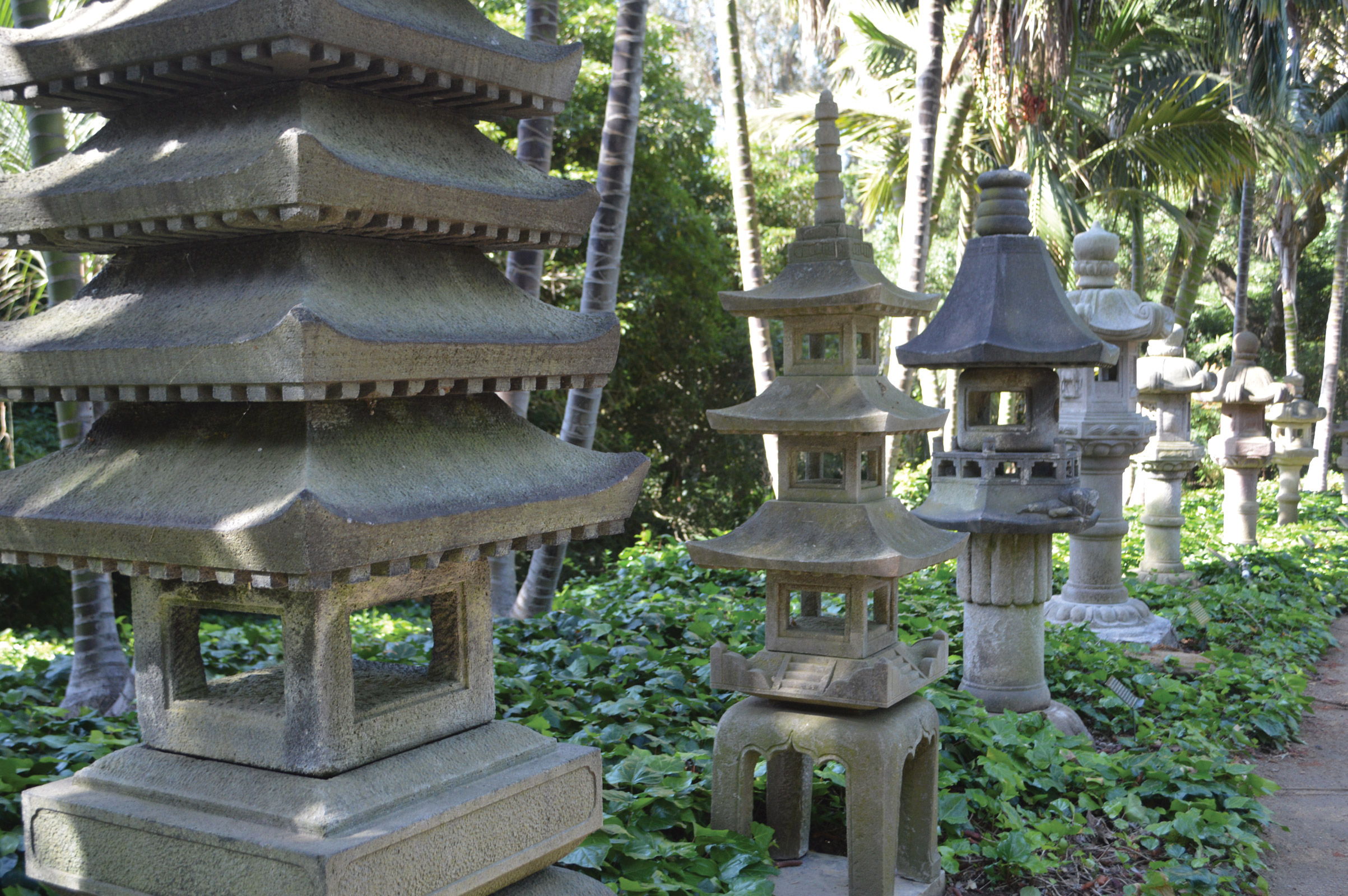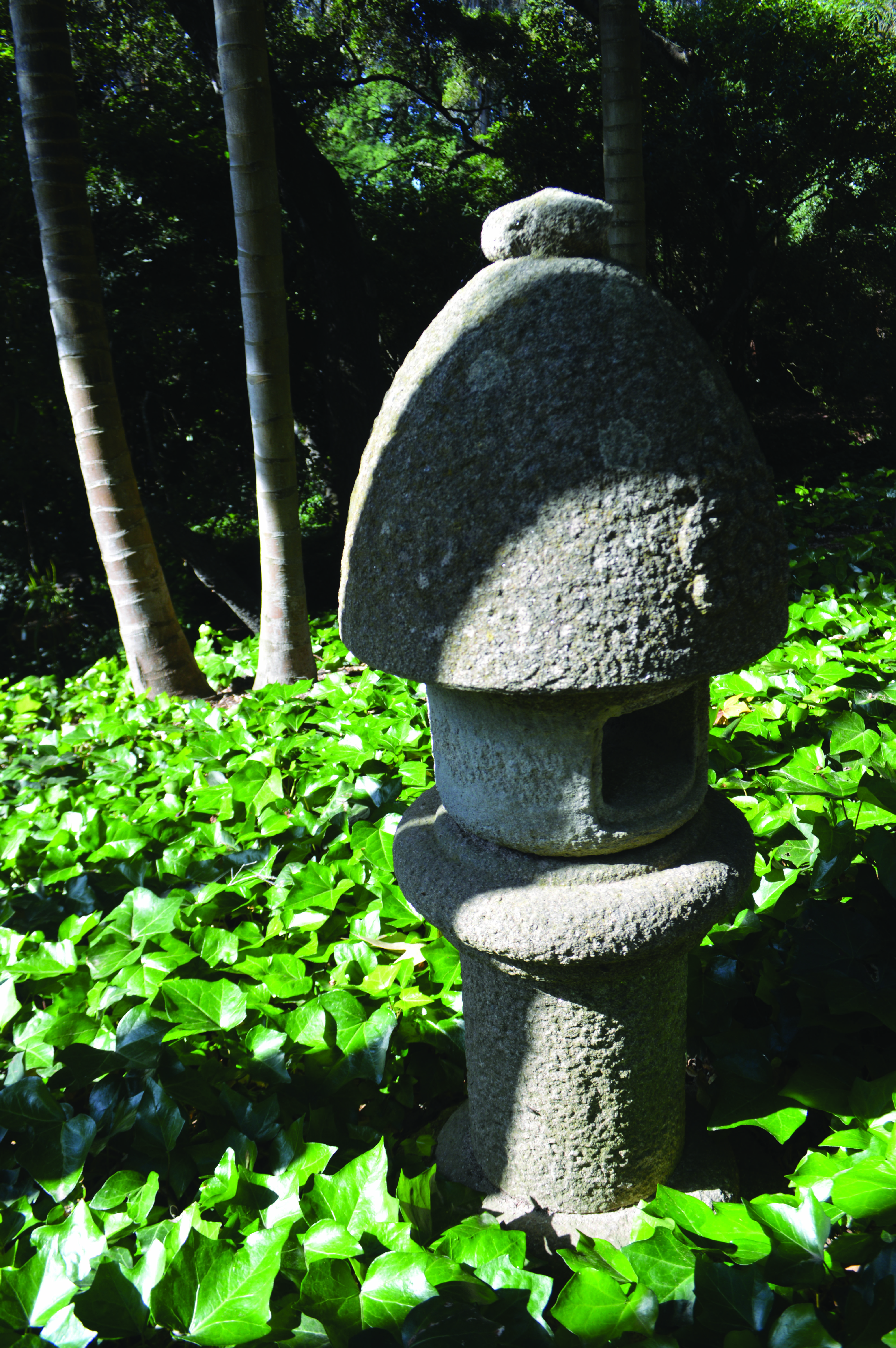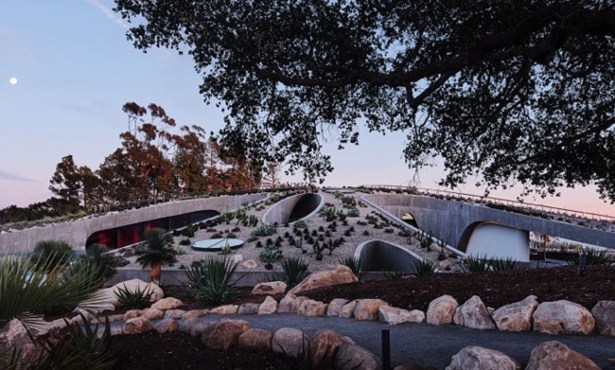Ishi-Dōrō Light the Path at Lotusland
Following Histories Made by Migrants at Lotusland

The story behind every great garden is very often a story of immigration — a story of both the people and the plants, working and growing together with the soil.
So goes the story behind Lotusland’s Japanese garden and the wonderful ishi-dōrō stone lanterns that line its ivied paths. Madame Ganna Walska, the Polish émigré and visionary behind Lotusland’s 37-acre botanical wonderland, first began planning this new garden in the 1960s, two decades after the end of World War II, when our country’s relationship with its former enemy had begun to warm again. But it was during the war years that Madame Walska began acquiring ishi-dōrō lanterns, some tossed out of Montecito gardens in an obscure show of patriotic fervor. With about 30 Japanese stone lanterns in her collection, Walska turned to her landscape designer, Frank Fujii, the son of Japanese parents who had originally come to this country in 1917. Together they began to collaborate on creating a traditional Japanese garden. Though Lotusland would have never blossomed if not for Walska’s wondrous vision, it was Fujii’s work in this and other gardens that made Lotusland the gem it is today.

As a child, Fujii and his family endured internment at the WWII Gila River camp in Arizona, where Japanese nationals and Americans of Japanese descent lived out the war. After their release, his family moved back to Santa Barbara, where Fujii reintegrated into the world, earning his contractor’s license in the 1950s. He built a few Japanese-style gardens in the area, including the Buddhist church on Montecito Street, and eventually began working at Lotusland. He crafted the Japanese garden according to the principles of natural harmony and balance, principles reflected in the ishi-dōrō themselves. Some of the designs are ancient. Buddhist monks, for example, first developed the Goju-no-to, or five-story pagoda, way back in the Asuka period of 600 ce. Their stories are written in the stone and on small placards that sit at their base.
Those who knew Fujii say he was a very quiet, very respectful man who never got mad, took great care of Walska’s botanical world, and mentored young gardeners in the bonsai style of Japanese pruning — and he was a great Ping-Pong player to boot. Though the Japanese garden will be under ADA renovations until fall 2018, you can still sense Fujii’s spirit as you walk alongside the lanterns. Visit them and see how tumultuous chapters of history can grow new periods of peace.



